Writing great Quora answers is not easy but it's also not impossible. With the right approach and understanding of what Quora considers "great answers," you can create compelling content that drives results.
In this blog post, I will guide you through the process of writing Quora answers that capture readers and produce results.
Let’s get started.
More...
Why should you pay attention to this guide?
I’ve been writing Quora answers for myself and clients since December 2019. Since then I’ve written over 2,000 Quora answers and reviewed over 1,000 more.
Everything I’m about to teach you today is what I’ve learned since then.
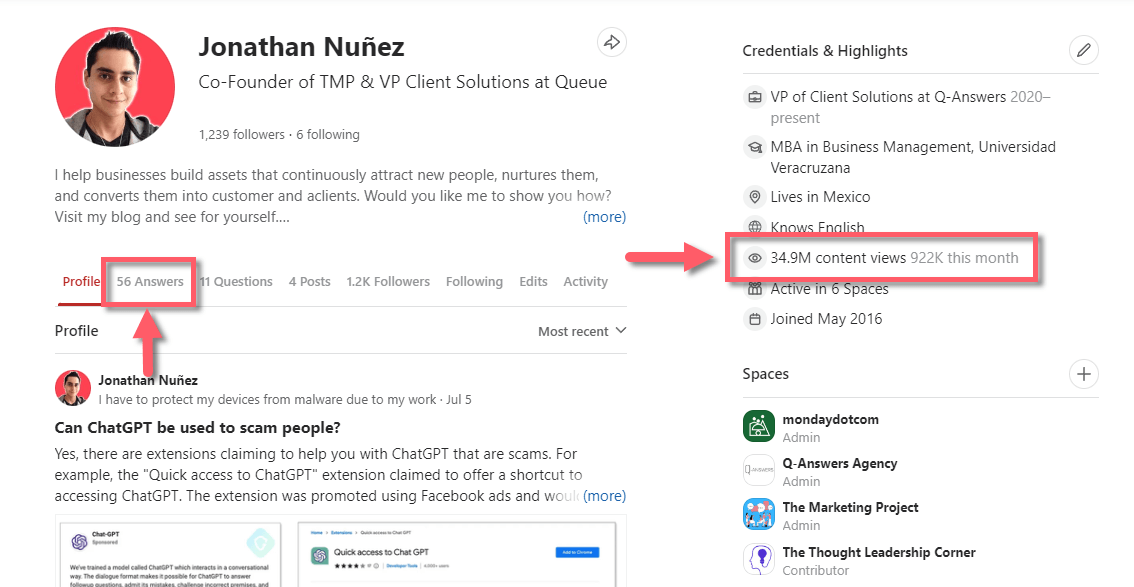
Jonathan's Quora Profile
What’s Quora’s definition of great answers?
“A good answer is helpful to anyone who wants to know the answer to the question. Good answers are helpful to both the original poster of the question and to anyone else who has the same question in the future. An answer is helpful when it's clear, credible, and sincerely addresses the question that was asked.” — Quora
Quora’s definition of good and helpful answers is simple but not very descriptive so what does it look like in practice?
A good answer can be summarized like this:
Answer the question that was asked.
Provide knowledge that is reusable by anyone interested in the question.
Support your answer with rationale.
Demonstrate credibility and factual accuracy.
Are clear and easy to read.
Good answers are also enjoyable to read.
Having said that, let's look at how to write great Quora answers.
How to write great Quora answers
When writing great Quora answers, understanding what people want to know is key. Here’s the process I always follow for writing Quora answers that drive results.
1) Analyze search intent
One effective way to discover what people want to know is by analyzing Google results.
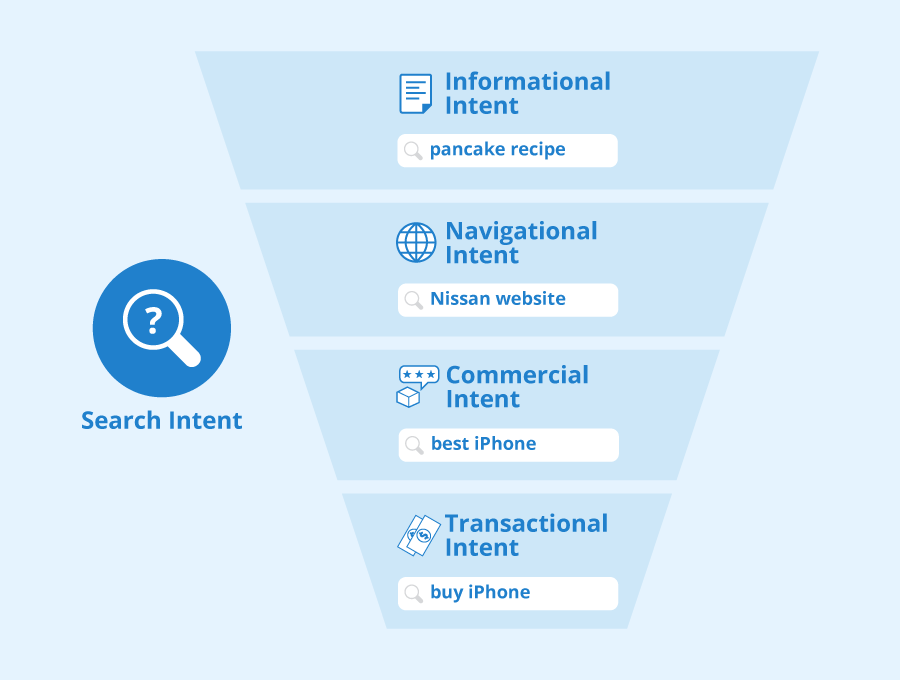
Author - Seobility - License - CC BY-SA 4.0
Start by searching on Google using relevant keywords related to the question or topic you want to answer on Quora. Take note of the top-ranked articles in the search results. These top results show what content is popular and widely considered authoritative.
These pages also teach you the type of content you need to create. For example, sometimes the top results are listicles, videos, guides, products, and more.
The point is to mimic what you see on these pages.
2) Analyze topics in search
Examine top-ranked pages and study their structure, tone, and key points. Pay attention to how they address the question or topic at hand and identify any unique angles or perspectives they offer.
One thing I love doing is making a list of all the headings these pages cover. Another thing that works well is looking at the “People also ask” section. This enables me to focus on the right information.
3) Write an answer outline
Answer outlines are fantastic for helping you focus on the right information and not ramble on. Use the information you found in Google’s “People also ask” section and the headings on the top pages to write your outline.
Here’s an example of an outline I wrote for a client:
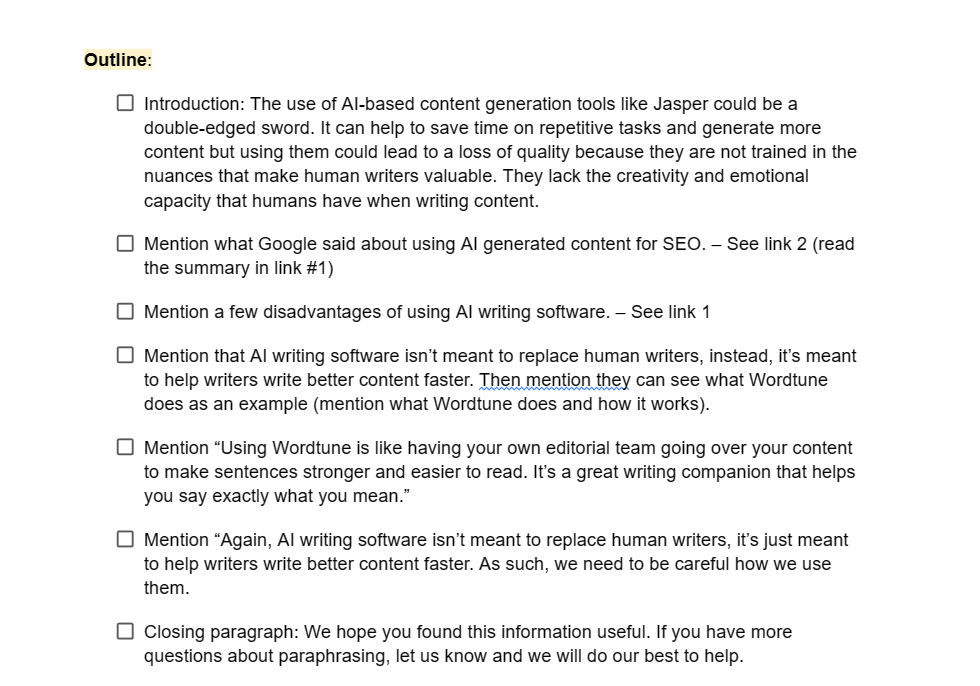
Example of a Quora answer outline.
4) Write your Quora answer
Once you have a clear understanding of the existing content available and you have your answer outline, write your Quora answer in a way that adds value and stands out from the rest.
Add insights and personal experiences that are not covered in the existing sources but are still relevant to the question being asked.
Remember, while it's helpful to analyze Google results for inspiration and guidance, it's just as important to provide original and thoughtful answers that cater specifically to Quora users' needs.
Combine your unique perspective with an understanding of what people search for to write great Quora answers. This will engage readers and establish you as an authority in your field.
Tips for writing great answers
The goal of Quora is to attract the most helpful answer for any question. So the best answers are the ones that get distribution and a wide readership.
With this in mind…
1) Start answering questions immediately.
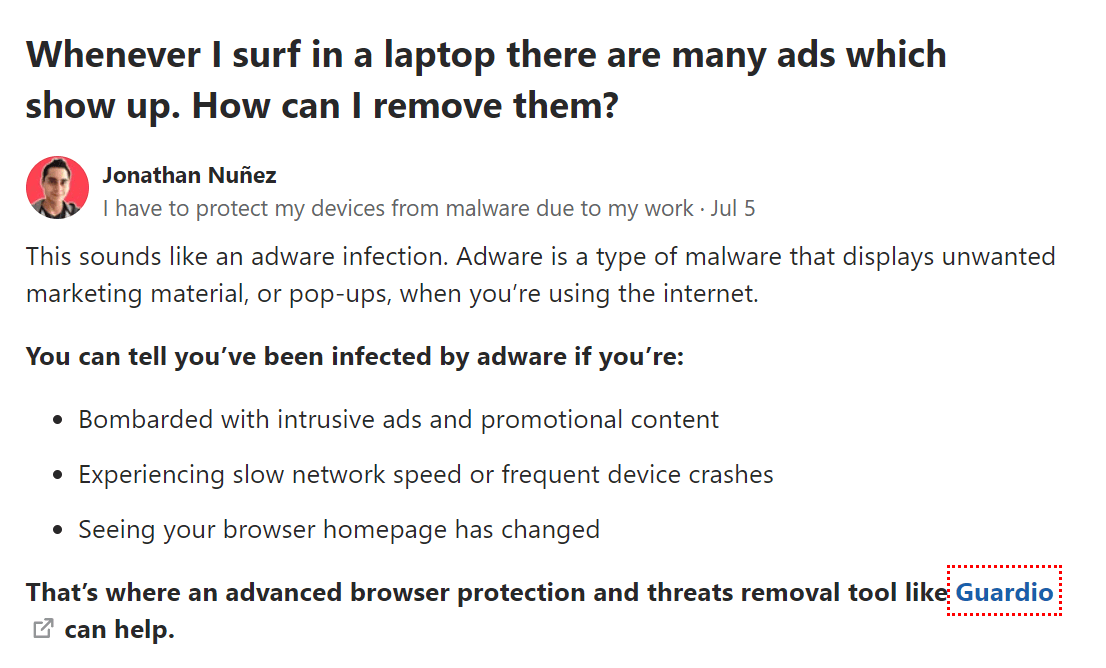
Quora answers aren’t blog posts so you don’t need long introductions. If you still want an introduction, keep it to 3 or 4 sentences long.
2) Walk people through processes step by step.
Step-by-step instructions are helpful for providing knowledge that is reusable by anyone reading the answer.
3) Use images whenever necessary.
A simple thing you can do to improve your answers is use images to show what you are talking about. Don’t just tell people what to do, show them.
4) Link to credible sources.
Something that works well for credibility is mentioning and linking to studies and credible sources that back up what you are talking about.
5) Focus on the facts.
You don’t always need to cite sources when discussing your own experience. However, if you write answers that depend on third-party facts and analysis, provide external links and source material.
6) Format your answers properly.
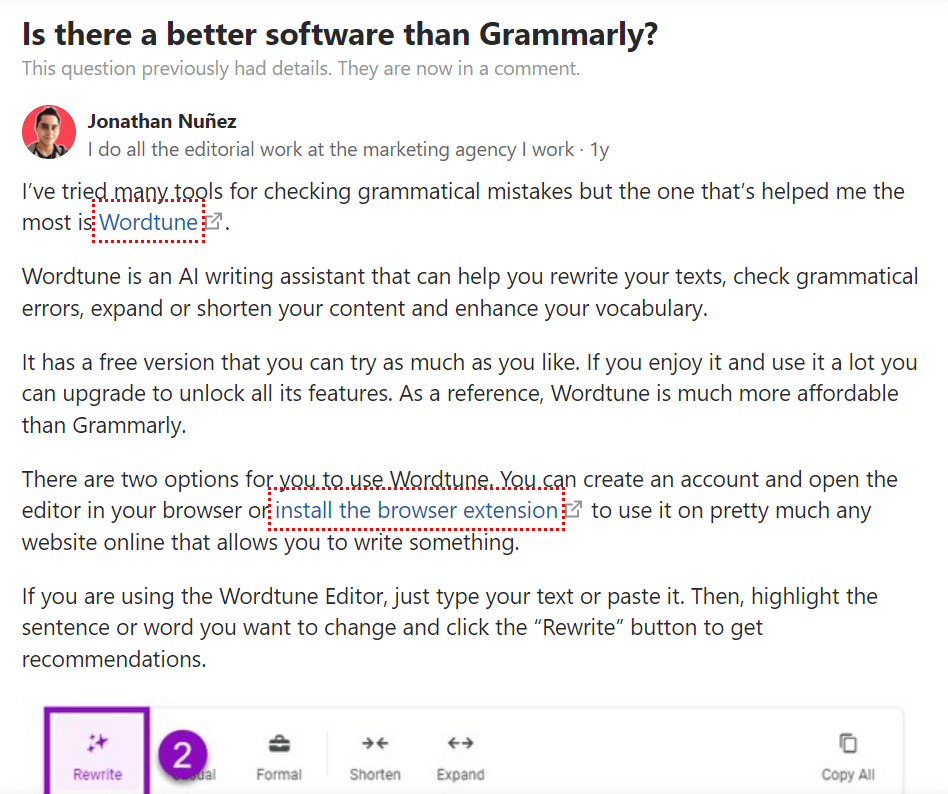
Good answers are clear to read and understand, even for someone reading quickly or skimming the page. Include simple formatting that adds structure and emphasizes key pieces of information.
7) Make your answers enjoyable to read.
The best answers are the most comprehensive, helpful, and trustworthy resource on the Internet for that question.
Conclusion
Writing great Quora answers requires a strategic approach to ensure maximum visibility and usefulness. When tackling any question on Quora, it is important to remember that Quora aims to attract the most helpful answer for users seeking information.
To achieve this, focus on providing valuable insights and actionable advice that directly addresses the question at hand.
Tie this with your products and services and you’ll have an asset that continually attracts new people, nurtures them, turns them into leads, and ultimately clients/customers.



